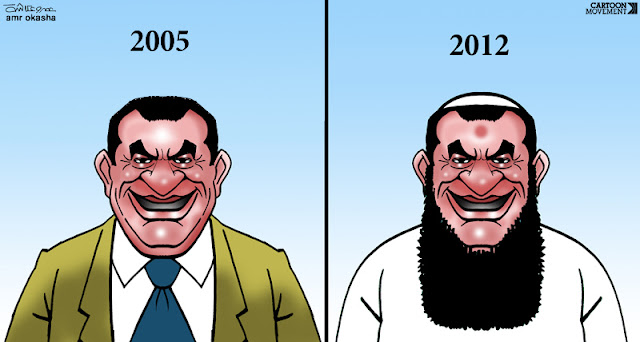Not more than two years ago, the concept of reform in Saudi Arabia would
have been as much an oxymoron as business ethics or airline cuisine. In
recent months, however, the Arab Spring’s uncertain winds of change
have finally begun to sweep into the world’s last forbidden kingdom.
Finding themselves alone in a crowd (of revolution) in the Middle East,
Saudi Arabia’s monarchs are quickly realizing that their secret police
and petrodollars may be no match for their citizens’ technology-driven
empowerment.
On March 1, Saudi security forces cracked down on a woman-led protest in
the city of Buraidah, known as the nerve center of Saudi Arabia’s
ultraconservative Wahabbist ideology. Over 160 people, mostly women and
children, were arrested after erecting a tent camp to pressure the
government to free their imprisoned husbands whom they claim have been
detained for years without visitation or access to legal counsel. The
Saudi government claims that the detainees are part of a “deviant
group,” a term given to suspected Al Qaeda sympathizers or Islamist
political opposition groups across the Gulf.
News of the arrests spread like wildfire. Protests in support of the
Buraidah women were called for by activists from the Shiite minority in
the Eastern Province and liberal reformists in Riyadh and Jidda. The
mobilization of Saudi conservatives, liberals and minorities against the
government’s repressive policies bore a dangerous resemblance to the
red-green alliances that toppled governments from Cairo to Tunis. While
turnout at the demonstrations was limited due to the government’s ban on
political gatherings, the Saudi Twittersphere was teeming with anger.
Two weeks later, the government-sponsored Arab News daily published a
cover story condemning what it deemed “abusive” actions by Saudi Twitter
users. The story mentioned that the authorities were mulling over a
plan to link Twitter accounts with their users’ identification numbers.
Soon after, the story was pulled from the online version of the
newspaper without explanation.
For one of the most Internet-privy societies on the planet, any move to
link Twitter accounts with personal ID numbers would result in a mass
exodus to other online forums that are not monitored. Saudi Arabia ranks
number one in the world for Twitter users per-capita, with an estimated
51 percent of all Saudi Internet users maintaining an account with the
social media network. Analysts suggest that any such move would result
in a 60 percent reduction of Twitter usage in the country — a true
window onto how many Saudis are voicing dissent against their
government.
Still, on March 31, the Saudi Communications and Information Technology
Commission instructed Skype, WhatsApp and Viber to comply with local
regulations or risk being shut down. These applications are
Internet-based communications services that are both free of charge and
not subject to the kingdom’s telecommunications regulations.
The Saudi government has a strong interest in limiting social media and
online communications services. Protests are being increasingly
organized through use of the WhatsApp messaging application. Political
dissidents are able to use Skype to communicate with human rights
organizations and foreign media networks without fear of government
monitoring. Some government employees and those with ties to the royal
family have begun to exploit Twitter to disseminate information
regarding corruption in the kingdom.
The Saudi government is, however, becoming increasingly hesitant about
limiting social media and other communications because of the potential
for a political backlash. Freedom of speech and communication were a
hallmark demand of popular uprisings elsewhere in the Arab world, with
attempts to cut online activity serving to fuel discontent rather than
mitigate unrest. Saudi Arabia is already a favorite target for civil
rights activists across the globe, and a ban on social media would only
add to a long list of reasons for further divestment and isolation
campaigns.
As an alternative, the Saudi government has begun encouraging loyalists
to condemn and pursue those suspected of online dissent rather than
close the outlets altogether. In recent weeks, a Shura Council member
filed a lawsuit against a critical Twitter user, while the
government-appointed imam of the Grand Mosque in Mecca dedicated his
Friday sermon on April 5 to condemning the social network, calling it a
“threat to national unity.”
As the government remains confounded by its inability to control online
dissent, there is no doubt that the rising tide of anger across Saudi
cyberspace has begun to spill over into physical reality. Unwillingly,
the government has been forced to wrestle with undertaking previously
unimaginable reforms with regard to women’s rights and employment
opportunities for millions of young, educated citizens. With social
media as their vehicle, Saudis are threatening to take control of their
country’s destiny for the first time in history, and there may be
nothing their government can do about it.
By
DANIEL NISMAN









